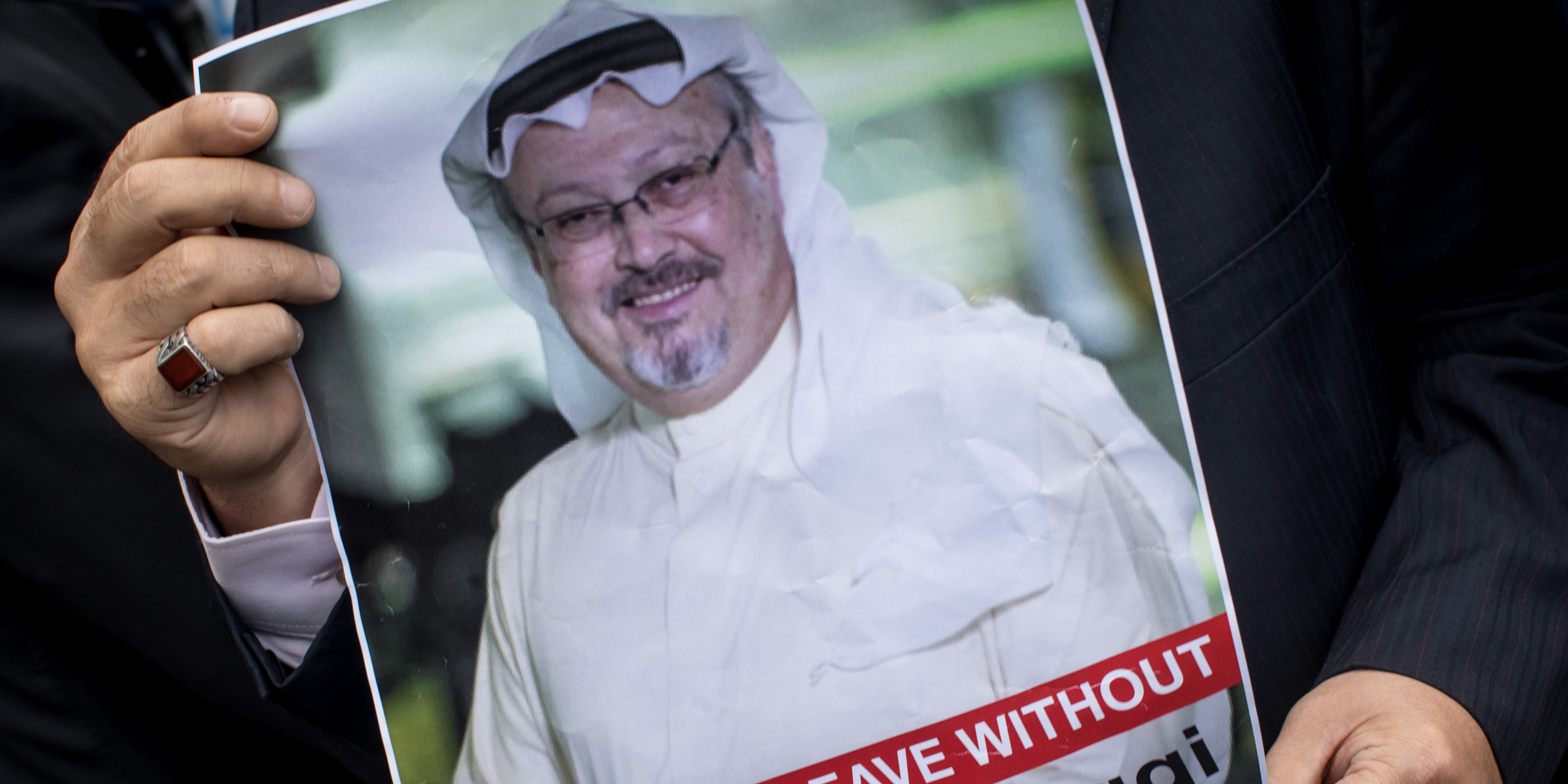- Jamal Khashoggi was barred from writing and making public appearances by the Saudi royal family after he criticized President Donald Trump in late 2016.
- Khashoggi went into self-imposed exile not long after the ban so he could continue reporting.
- Khashoggi became a US resident and wrote for The Washington Post, continuing to criticize the kingdom’s policies from afar.
- Khashoggi was killed in the Saudi Consulate in Istanbul on October 2.
- Trump on Tuesday issued a forceful defense of the Saudis over Khashoggi’s killing, sparking widespread condemnation.
Since Jamal Khashoggi was killed after entering the Saudi Consulate in Istanbul in early October, he has been widely characterized as a dissident.
Khashoggi considered himself a patriot, rejecting the term dissident, but he was often critical of the Saudi government in his reporting. But Saudi Arabia’s government actually barred him from appearing in media there after he criticized President Donald Trump in late 2016, according to the US State Department.
Khashoggi had criticized Trump’s stance and rhetoric on the Middle East in an appearance at a Washington, DC, think tank.
“The expectation that ‘Trump as president’ will be starkly different from ‘Trump as candidate’ is a false hope at best,” Khashoggi said at the time.
Khashoggi left his native country roughly six months after the ban in June 2017, which also prohibited him from making TV appearances and attending conferences. He became a US resident - splitting time between Virginia, Istanbul, and London - and wrote columns for The Washington Post.
From a 2017 State Department report on Saudi Arabia human rights:
"Well-known Saudi journalist Jamal Khashoggi said he moved to the United States in 'self-exile' and 'could face arrest upon returning home' due to his writing. He claimed his column in Saudi newspaper al-Hayat had been cancelled under political pressure. In 2016 authorities purportedly banned him from writing, appearing on television, and attending conferences as the result of remarks he made that were interpreted as criticizing the president of the United States, according to multiple media sources. Earlier, in July, authorities reportedly lifted the writing ban against him."
In a conversation with Columbia Journalism Review in March 2018, Khashoggi reflected on the ban.
"I'm a believer in free journalism, despite all the limitations we had. I always pushed the envelope, I always wanted to have more space," he said.
Khashoggi added: "I was so insulted when the royal court called me and told me that I am not allowed to write. ... In America, you take freedom for granted."
The Saudi journalist's killing has threatened to upend the historic US-Saudi relationship.
The CIA reportedly concluded with "high confidence" that Khashoggi's killing was ordered by Crown Prince Mohammed bin Salman, the de facto ruler of the kingdom. Riyadh has shifted its narrative on what happened to Khashoggi multiple times amid global condemnation, but has insisted Prince Mohammed was not involved.
Meanwhile, bipartisan outrage has erupted in Congress over Khashoggi's killing and the gruesome details that have emerged about his fate.
But President Donald Trump has stood by Prince Mohammed and repeatedly touted the purported economic and strategic benefits of the US-Saudi relationship.
Trump on Tuesday said the US "intends to remain a steadfast partner of Saudi Arabia" despite Khashoggi's killing, and he's been broadly accused of once again undermining the US intelligence community as well as the US government's commitment to human rights.
The president's ongoing support of the Saudis throughout this crisis has led many critics to question whether his business ties in the country are influencing his foreign policy.
READ MORE:
- Here's everything we know about the troubling disappearance of the Saudi journalist Jamal Khashoggi
- Trump is placing his trust in someone who is either lying or can't stop his henchmen from brutally killing journalists
- Top Senate Democrat slams Trump's response to Khashoggi killing, says president is making US look 'weaker' than ever by kowtowing to Saudis
- Jamal Khashoggi's disappearance is an 'embarrassing' 'crisis' for Trump and 'one of the roughest foreign-policy challenges' he's faced yet, experts say
- Missing journalist Jamal Khashoggi had a complicated past involving interviews with Osama bin Laden and close ties to the Saudi royal family
- Lindsey Graham says 'toxic' Saudi Crown Prince Mohammed bin Salman had Khashoggi 'murdered' and can 'never be a world leader'
- 'Maybe he did and maybe he didn't': Trump defiantly stands with Saudi Arabia and Crown Prince Mohammed before release of CIA report on Jamal Khashoggi's killing
- 'POTUS sided with a brutal dictator over CIA? Shocking': Trump widely bashed for siding with Saudi Arabia over Jamal Khashoggi's killing

